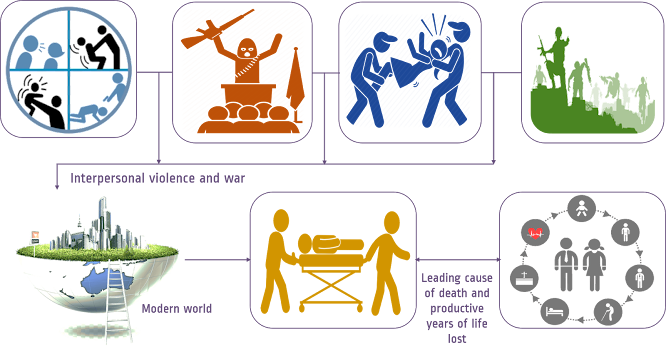Challenges in Public Heath

Challenges in Public Health Unfortunately, in the modern world, interpersonal violence and war have become common. In some segments of society (particularly among adolescent and young adult minority males), violence has become the leading cause of death and productive years of life lost. Public health cannot ignore the fact that violence and wars are major factors dramatically reducing the quality of life for millions. Many of the advances in public health have become possible through research. The research will continue to be essential for identifying and anticipating health problems and the optimal strategies for addressing them. Strategies that seem very logical may, in fact, not succeed for a variety of unforeseen reasons. Therefore, public health systems and programmes cannot be assumed to function cost-effectively without continuous monitoring and evaluation. Thus, it is essential that new public health strategies undergo rigorous evaluation before being scaled up, and once s...
